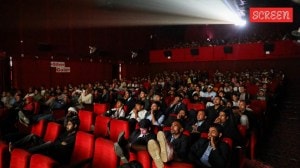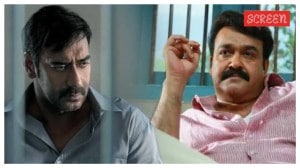Govt buckled to babus, watered down reforms
NEW DELHI, January 17: The senior bureaucrats and DVB officials in the team which authored the Delhi Government's White Paper on power wa...

NEW DELHI, January 17: The senior bureaucrats and DVB officials in the team which authored the Delhi Government8217;s White Paper on power watered down the pro-World Bank line advocated by the Secretary of the AICC8217;s Economic Affairs, Jairam Ramesh, a special invitee to the team.
As a result, the toned-down White Paper just proposes limited privatisation in the area of new power generation in which the DVB does not have much role to play. The rest transmission and distribution is very much left under the State government wing and bureaucratic control as before.
This bureaucratic coup may have satisfied the DVB officials and its 50,000 unions-prone employees but falls short of the reform package suggested in the World Bank guidelines which was given to the Delhi Government. Thus, it may have jeopardised the cash-strapped DVB8217;s and Delhi8217;s chances of getting the much-needed IDBI grant.
Chief Secretary Omesh Saigal, however, told Express Newsline that the Delhi Administration is not against the privatisation of the power sector in Delhi. 8220;The privatisation has to be in stages. We cannot afford to go all hog. We are opening power generation for privatisation and we have said that we will initially go for corporatisation of transmission and distribution of power,8221; he argued.
The World Bank team, which had at least three meetings in the past one year over this issue, appeared to be interested in giving about Rs 2,500 crore provided the Delhi Government shows total commitment towards privatisation. It is likely that it would not show much interest in investment, as the Government8217;s Strategy Paper on Power has diluted its commitment towards privatisation.
In fact, 17 per cent of Delhi Government8217;s Rs 400-crore budget goes into managing the power sector which fails to fulfill the 2,500-MW requirement. This failings Govt buckled to babus, watered down power reforms would be even more perceptible during the coming summer which is already projected to have a 300-MW short-fall.
World Bank officials had recommended a three-point strategy to firm up the unwieldy8217; DVB. And immediate corporatisation and privatisation of the DVB was part of the reform package put forward by the World Bank as a prerequisite for the huge loan that the Delhi Government was asking for. It was meant to set right the Delhi8217;s erratic power supply.
It was during the former BJP Government8217;s time that the negotiations with the World Bank on the power sector grant had begun. But the discussions had fallen through midway. It was revived once again by the new Congress Government.
Ramesh was reportedly present in a special capacity as the AICC8217;s new economic expert at the meeting that Delhi Chief Minister Sheila Dikshit and Power Minister Narendra Nath, had with the World Bank officials last month.
According to high-level sources in the Delhi Government, Ramesh pitched in for total privatisation and corporatisation of the DVB as the only solution to Delhi8217;s goofed-up power management. 8220;He also recommended that the State Government should give up control of the DVB and leave power management entirely to the private sector as has been done in Haryana and other states as well as cities like Calcutta and Bombay,8221; the sources said.
However the other members of the White Paper committee 8212; energy expert T.L. Shankar, who is at present the director of the Staff Training in Hyderabad, former general manager of Delhi Electric Supply Undertaking R.K. Narayana, Delhi Chief Secretary Omesh Saigal, DVB chairman Virender Singh, DVB Member Technical S.P. Aggarwal 8212; put the might to save the DVB juggernaut from being privatised.
As a comprise formula it was decided that the DVB8217;s transmission and distribution department will be broken up into smaller manageable segments which will operate as independent companies, the sources said.
8220;The Power Minister was scared that the trade unions would create problems and it was felt that the DVB8217;s employees future is being jeopardised and the state government is washing its hands of DVB,8221; the sources said.
Saigal, however, pointed out that the biggest problem in privatisation is 8220;modalities8221; to work out swift shift of power sector into private hands. 8220;The value of government assets in the power sector is yet to be ascertained and the Administrative Reforms Tribunal is still engaged in this exercise. DVB8217;s accounts haven8217;t been finalised and ICICI, which is handling the accounts, is yet to submit its report. Against this backdrop, how can we begin the privatisation exercise?8221; he said.
Ramesh, who was present at White Paper briefing on Friday, sarcastically said: 8220;Nobody from the private sector wants to come to Delhi. Its power sector is too problem-ridden. The deal with the Reliance Group of companies fell through, now the Apollo Group and Thapar8217;s are showing some interest. But it would take a long time to win investor8217;s confidence in Delhiquot;.
- 01
- 02
- 03
- 04
- 05































